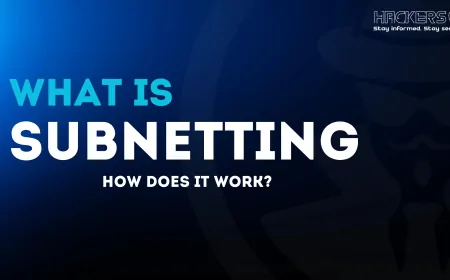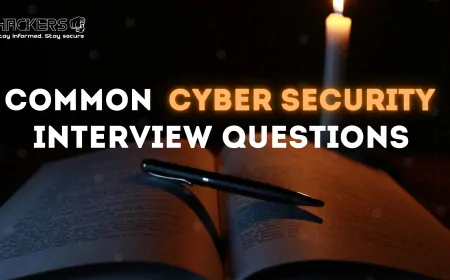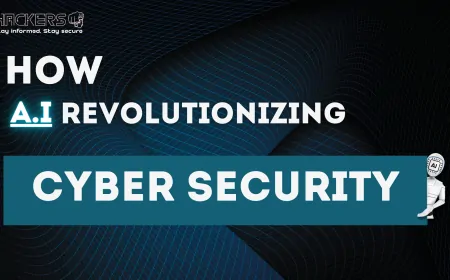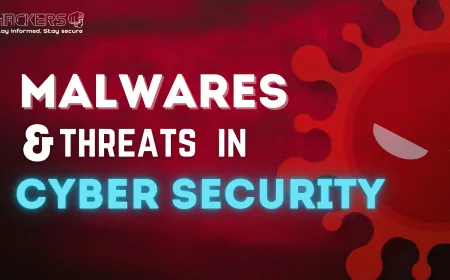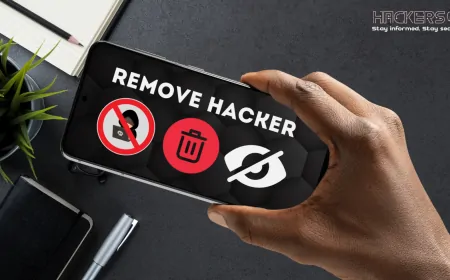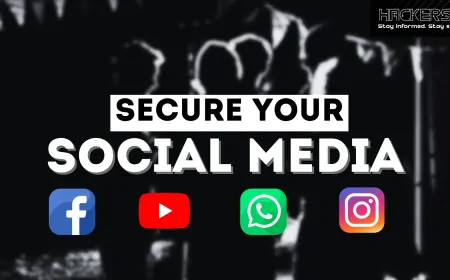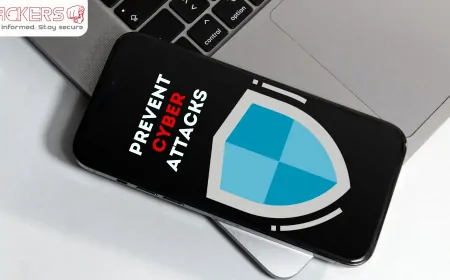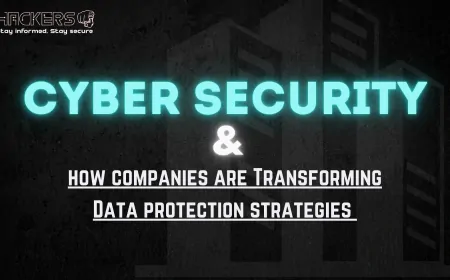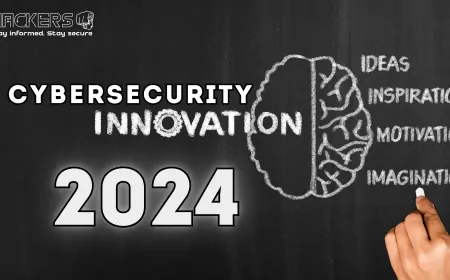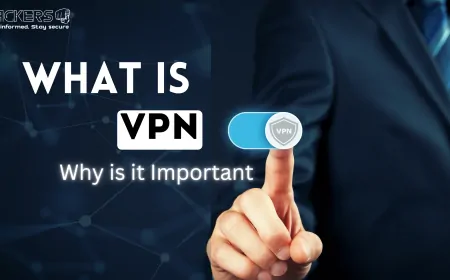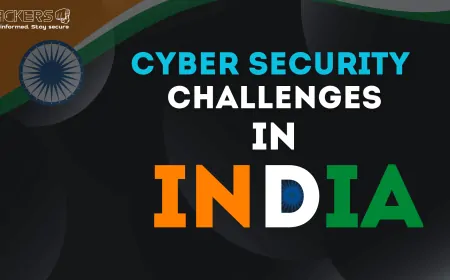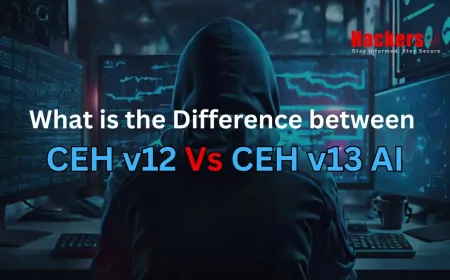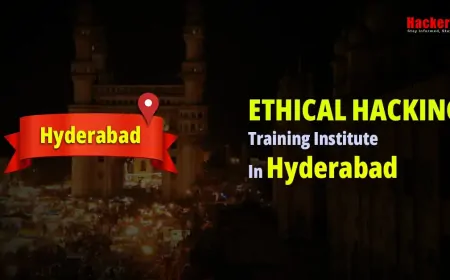Best Cyber Security Courses After 12th | Eligibility, Fees, and Syllabus for 2024
Explore the best cybersecurity courses after 12th grade in 2024. Learn about eligibility, fees, syllabus, and career opportunities to kickstart your career in cybersecurity

Introduction
The increasing reliance on digital platforms has made cybersecurity one of the most sought-after fields in the tech industry. For students who have completed their 12th grade and are passionate about protecting digital assets, pursuing a cybersecurity course can be a rewarding choice. This guide provides insights into the best cybersecurity courses after the 12th, along with details on eligibility, fees, and the syllabus for 2024.
Why Choose Cybersecurity After 12th?
Cybersecurity professionals are in high demand due to the growing number of cyber threats targeting businesses and individuals. With cybercrime on the rise, organizations are investing heavily in security measures, creating numerous job opportunities in this field. By starting your cybersecurity journey right after 12th grade, you can gain a competitive edge and build a successful career in protecting digital infrastructures.
Eligibility Criteria for Cybersecurity Courses After 12th
To enroll in a cybersecurity course after the 12th, you typically need to meet the following eligibility criteria:
- Educational Qualification: Completion of 12th grade from a recognized board with a focus on Science (preferably with Mathematics, Physics, and Computer Science).
- Minimum Marks: Most institutes require a minimum of 50-60% aggregate marks in 12th grade.
- Basic Computer Knowledge: A basic understanding of computers and the internet is recommended, although not mandatory.
- Entrance Exams: Some colleges or institutes may require you to clear entrance exams like JEE, CET, or institute-specific tests.
Best Cybersecurity Courses After 12th
Here are some of the best cybersecurity courses available for students after completing their 12th grade:
-
Bachelor of Science (B.Sc.) in Cybersecurity
- Duration: 3 years
- Fees: INR 50,000 - 2,00,000 per year
- Syllabus Highlights:
- Fundamentals of Cybersecurity
- Network Security
- Ethical Hacking
- Cryptography
- Digital Forensics
- Cyber Laws and Ethics
-
Bachelor of Technology (B.Tech) in Cybersecurity
- Duration: 4 years
- Fees: INR 1,00,000 - 4,00,000 per year
- Syllabus Highlights:
- Data Structures and Algorithms
- Network Security and Management
- Cyber Threat Intelligence
- Penetration Testing
- Secure Coding
- Cybersecurity Operations
-
Diploma in Cybersecurity
- Duration: 1-2 years
- Fees: INR 20,000 - 1,00,000
- Syllabus Highlights:
- Basics of Information Security
- Incident Response
- Malware Analysis
- Ethical Hacking Techniques
- Security Risk Management
-
Certificate Courses in Cybersecurity
- Duration: 6 months - 1 year
- Fees: INR 10,000 - 50,000
- Syllabus Highlights:
- Introduction to Cyber Threats
- Network Defense
- Cyber Incident Handling
- Vulnerability Assessment
- Secure Web Application Development
Syllabus Overview for Cybersecurity Courses
While the syllabus may vary depending on the course and institution, here are common topics covered in most cybersecurity courses:
- Introduction to Cybersecurity: Understanding the basics of cybersecurity, including key concepts, principles, and the importance of security in the digital world.
- Network Security: Learning about securing networks, understanding firewalls, VPNs, and intrusion detection systems.
- Ethical Hacking and Penetration Testing: Gaining knowledge on ethical hacking techniques, penetration testing methodologies, and vulnerability assessments.
- Cryptography: Studying encryption methods, cryptographic algorithms, and data protection techniques.
- Digital Forensics: Learning how to investigate cybercrimes, collect digital evidence, and analyze data to solve cases.
- Cyber Laws and Compliance: Understanding the legal aspects of cybersecurity, including data protection laws, compliance standards, and ethical considerations.
Career Opportunities After Cybersecurity Courses
Upon completing a cybersecurity course, students can explore various career paths, such as:
- Security Analyst
- Penetration Tester (Ethical Hacker)
- Security Consultant
- Network Security Engineer
- Cyber Forensics Expert
- Incident Responder
Conclusion
Pursuing a cybersecurity course after 12th grade opens doors to a promising career in a rapidly growing field. With the right education and skills, you can become a crucial part of the global effort to combat cyber threats. Choose a course that aligns with your interests and career goals, and take the first step towards a secure future in cybersecurity.
FAQs
1. What are the best cybersecurity courses available after the 12th?
The best courses include B.Sc. in Cybersecurity, B.Tech in Cybersecurity, Diploma in Cybersecurity, and various certificate courses that offer foundational to advanced knowledge in cybersecurity.
2. What is the eligibility criteria for cybersecurity courses after the 12th?
Typically, students must have completed 12th grade with a focus on Science, preferably with subjects like Mathematics, Physics, and Computer Science. A minimum of 50-60% aggregate marks is usually required.
3. Are there any entrance exams for cybersecurity courses?
Some institutes may require entrance exams such as JEE, CET, or institute-specific tests. However, many diploma and certificate courses have direct admissions based on 12th-grade marks.
4. What is the duration of cybersecurity courses after 12th?
The duration varies: B.Sc. in Cybersecurity is typically 3 years, B.Tech in Cybersecurity is 4 years, diploma courses range from 1-2 years, and certificate courses last between 6 months to 1 year.
5. How much do cybersecurity courses cost?
The fees depend on the course and institution. B.Sc. courses range from INR 50,000 to 2,00,000 per year, B.Tech courses from INR 1,00,000 to 4,00,000 per year, diplomas from INR 20,000 to 1,00,000, and certificate courses from INR 10,000 to 50,000.
6. What subjects are covered in cybersecurity courses?
Common subjects include Fundamentals of Cybersecurity, Network Security, Ethical Hacking, Cryptography, Digital Forensics, Cyber Laws, Incident Response, and Secure Coding.
7. Are there online cybersecurity courses available after the 12th?
Yes, many institutions and online platforms offer cybersecurity courses that can be completed remotely, providing flexibility for students who prefer online learning.
8. What career opportunities are available after completing a cybersecurity course?
Graduates can pursue roles such as Security Analyst, Penetration Tester, Security Consultant, Network Security Engineer, Cyber Forensics Expert, and Incident Responder.
9. Is it necessary to have a background in computer science to pursue cybersecurity?
While a background in computer science is beneficial, it is not mandatory. Basic computer knowledge and a strong interest in cybersecurity concepts are usually sufficient to get started.
10. What skills are essential for a career in cybersecurity?
Key skills include problem-solving, analytical thinking, knowledge of networking and operating systems, familiarity with security protocols, and the ability to stay updated with the latest cyber threats and technologies.
What's Your Reaction?









